Of Course U.S. Rebalancing Is about China. by Justin Logan
Brad Glosserman has penned a provocative article
arguing that America's rebalancing toward the Asia-Pacific isn't about
"fear of China." Fear may be too strong a word, but the argument is
still wrong. Of course it's about China.
It's telling that Glosserman's article itself is all about China. For
instance, he mentions Washington's support for freedom of navigation in
the South China Sea. But the recent friction hasn't been between
Vietnam and the Philippines. It isn't Malaysia claiming almost all the territorial waters there. No, the current panic in the South China Sea is all about China.Conversations with 'Gov. Gary'. by Gene Healy
Last fall, GQ ran a profile of former New Mexico Gov.
Gary Johnson, then a candidate for the Republican presidential
nomination, under the headline "Is This the Sanest Man Running for
President?" The piece noted that in 2003, Johnson scaled Mount Everest
with a broken leg, and in 2005, broke his back paragliding off the
highest mountain in Maui. "Sanest"? Well, maybe not.
But Johnson, now running on the Libertarian Party ticket, is
certainly the most interesting candidate in the 2012 field — and that's
not an attempt to damn with faint praise.Mitt Romney Vs. Republican Bigotry
|
|
 ormer
Massachusetts governor and current U.S. presidential candidate Mitt
Romney may succeed in tapping into the coffers of former financial
backers of the Bush family’s political fortunes. One would expect no
less from a man who has all the patrician bearing of George Bush, Sr. ormer
Massachusetts governor and current U.S. presidential candidate Mitt
Romney may succeed in tapping into the coffers of former financial
backers of the Bush family’s political fortunes. One would expect no
less from a man who has all the patrician bearing of George Bush, Sr.
But all of the money raking, supremely important as it is in U.S. elections, may do him no good in the end.
At a recent discussion, I asked a speculative question about the
policies of a future Romney Administration. It was a largely Republican
crowd, and I had tried to be nice. To no avail. As I was walking out
after the event, a septuagenarian defense type sidled up to me and
hissed under his breath, “This country will never elect a Mormon as
president.”
And then I realized that the man, acting so adamantly against his
own basic political instincts, had basically pronounced Barack Obama’s
reelection. Lots of disappointed liberals may stay home in November
2012, but so will a lot of Republicans if Mitt Romney is their party’s
standard-bearer.
|
Rebuilding Through Reform: How to Ensure Global Financial Stability
 |
Photo credit: SVLuma/Shutterstock.com |
|
Globalist Perspective
> Global Finance Rebuilding Through Reform: How to Ensure Global Financial Stability |
|
By Esther L. George | |
While
policymakers are busy trying to mitigate the damage of the recent
financial crisis, they also need to be thinking ahead to the next
crisis. Esther L. George, president of the Federal Reserve Bank of
Kansas City, urges policymakers to ask what really went wrong last time —
and what can be done to build a more resilient financial system for the
future.
 he
current crisis is following much the same pattern of previous financial
crises — an inability or unwillingness to see the warning signs and
take preventive action, followed by massive damage, and then working
through the emergency policy steps and the rebuilding of our financial
system. he
current crisis is following much the same pattern of previous financial
crises — an inability or unwillingness to see the warning signs and
take preventive action, followed by massive damage, and then working
through the emergency policy steps and the rebuilding of our financial
system.
We must also recognize that our resolve in dealing with financial crises unfortunately tends to diminish after a crisis passes. Understandably, financial institutions want to get back quickly to a more profitable state, and the public wants a prompt and painless return to the prosperity they enjoyed before the crisis. As a result of this substantial pressure, many policymakers and market participants become reluctant when it is time to make the hard judgments about effective reforms and instituting greater risk restraints. Signs of this are already occurring with the efforts by financial institutions and others to weaken or delay stronger capital standards and other provisions of the Dodd-Frank Act. That would be unwise. |
Tyrants and Human Nature
Tyrants and Human Nature
Crovitz: Who Really Invented the Internet?
Crovitz: Who Really Invented the Internet?
It's an urban legend that the government launched the Internet. The myth is that the Pentagon created the Internet to keep its communications lines up even in a nuclear strike. The truth is a more interesting story about how innovation happens—and about how hard it is to build successful technology companies even once the government gets out of the way.
News Versus Propaganda
News Versus Propaganda
Too many people in the media cannot seem to tell the difference between reporting the news and creating propaganda.
Mexican Drug Trafficking (Mexico's Drug War)
Mexican Drug Trafficking (Mexico's Drug War)

Although Mexico has been a producer and transit route for illegal drugs for generations, the country now finds itself in a pitched battle with powerful and well-financed drug cartels.
In January 2012, the Mexican government reported that 47,515 people had been killed in drug-related violence since President Felipe Calderón began a military assault on criminal cartels soon after taking office in late 2006.
The official tally, provided by the attorney general’s office, included data only through September 2011, and it showed that drug-related killings increased 11 percent, to 12,903, compared with the same nine-month period in 2010. Still, a government statement sought to find a silver lining, asserting that it was the first year since 2006 “that the homicide rate increase has been lower compared to the previous years.”
But that was unlikely to calm a public scared by the arrival of grisly violence in once-safe cities like Guadalajara and in the region around Mexico City.
Once Just a Stopover for Drug Traffickers, Argentina Has Now Become a Destination. By EMILY SCHMALL
BUENOS AIRES — Héctor Jairo Saldarriaga, alias the Dagger, changed his
address here three times in the weeks before his killer finally caught
up with him in April in front of a family-run cafe in the middle-class
neighborhood of Barrio Norte.
Angie Sanclemente Valencia, center, a Colombian
beauty pageant winner, in Buenos Aires in 2010. She is serving time for a
drug-smuggling conviction.
While investigating his death, the police discovered that he had three
Argentine passports under false names but was really a Colombian who had
once worked as an assassin for a prominent Colombian drug trafficker.
As the trafficking of illegal drugs picks up in Argentina,
residents are growing accustomed to front-page news of drug raids,
shootouts and the grim reality that the country is no longer simply a
transit point for the world’s most-wanted drug traffickers from places
like Mexico and Colombia.
For many of these outlaws, Argentina has become home base, a
comfortable refuge where many of them lie low while keeping a hand in
the industry.
Mexico's Enrique Peña Nieto, man of mystery
MEXICO CITY — He bears tiny white scars all over his hands from the sea of supporters who grasped at his outstretched arms, clawing to greet him, during three months of music-filled rallies and mobbed appearances in almost every Mexican state.
For months now, images of the handsome young politician and his glamorous soap-opera-star wife have filled Mexican television screens and fan magazines. Young admirers showed up at his campaign events wearing fake versions of his trademark hair flip.
Pressure mounts on PRI over its Mexico presidential election win
Pressure mounts on PRI over its Mexico presidential election win
MEXICO CITY -- In an unusual union, Mexico's left and right came together Thursday to challenge the victory of President-elect Enrique Peña Nieto, alleging that his party financed its campaign in part with laundered money.
Gustavo Madero, president of the conservative National Action Party, which now occupies the presidency but got trounced in the July 1 vote, announced at a news conference that he had evidence of money laundering by Peña Nieto's Institutional Revolutionary Party, or PRI.
Oswaldo Paya dies at 60; Cuban anti-Castro activist
Oswaldo Paya dies at 60; Cuban anti-Castro activist
Oswaldo Paya gained global recognition as top organizer of the Varela Project, seen as the biggest nonviolent campaign to change Cuba's communist system.

Cuban dissident leader Oswaldo Paya greets supporters in Havana in 2003.
(Adalberto Roque, AFP/Getty Images / July 24, 2012)
|
Paya and a Cuban man described by media as a fellow activist, Harold Cepero Escalante, died in an accident in La Gavina, just outside the eastern city of Bayamo, Cuban authorities said. A Spaniard and a Swede also riding in the car were injured.
Mexico cartel attacks on press take toll on drug war coverage
MEXICO CITY — The nearly simultaneous attacks on the offices of the two newspapers were disturbingly similar: Gunmen armed with automatic rifles and grenade launchers opened fire, shattering glass and terrifying those inside.
But the responses by the two news outlets that came under siege, leaving staffers shaken but unhurt, have been markedly different.
El Mañana newspaper in the border city of Nuevo Laredo, the northeastern region's dominant daily, announced in an editorial a day later that it would no longer report on "violent disputes," an allusion to the battle between rival drug-trafficking networks fighting over a vast network of criminal activities.
The Drug War in Mexico: Corruption Is Better Than Slaughter
Will Enrique Peña Nieto, the new president of Mexico from the
corrupt and authoritarian Institutional Revolutionary Party (PRI), go easy on drug traffickers?
Let’s hope so.
During his campaign, Mr. Peña Nieto vowed to battle murder, extortion, kidnapping, and other violent crimes but said little about going after drug traffickers. During its unrivaled 70-year reign that ended in 2000, the PRI was accused of cutting deals with crime syndicates to keep the peace. Although such agreements were corrupt, perhaps corruption is better than the militarized U.S.-backed anti-drug war of Felipe Calderón, the current Mexican president. Fatigue with that costly war, which has killed more than 50,000 Mexican civilians in recent years, played a significant role in Mexicans bringing back a venal and autocratic PRI that they had thrown out of office 12 years before.
During his campaign, Mr. Peña Nieto vowed to battle murder, extortion, kidnapping, and other violent crimes but said little about going after drug traffickers. During its unrivaled 70-year reign that ended in 2000, the PRI was accused of cutting deals with crime syndicates to keep the peace. Although such agreements were corrupt, perhaps corruption is better than the militarized U.S.-backed anti-drug war of Felipe Calderón, the current Mexican president. Fatigue with that costly war, which has killed more than 50,000 Mexican civilians in recent years, played a significant role in Mexicans bringing back a venal and autocratic PRI that they had thrown out of office 12 years before.
The Drug War Finds New Ways to Fail
The federal government’s effort to battle drug abuse has
been a tragic and expensive failure. But of course, admitting that
would make politicians, who regularly endorse it to sound tough, seem foolish and careless with taxpayer
dollars. So the War on Drugs continues, while of necessity it
slowly morphs into new forms of federal waste and unnecessary
intrusion into people’s lives.
Militarized federal law enforcement just can’t cope with trendiness in recreational drug use. Cocaine use is so yesterday (the 1980s, to be exact) and is a declining problem. Even at the height of the crack cocaine epidemic in the mid-1980s, only 5.8 million people in a population of about 240 million were using the drug; the latest National Survey on Drug Use and Health estimated that only 1.5 million in a population of 313 million use cocaine. In recent years, methamphetamine use has also declined. Lately, heroin use is up slightly but still affects a minuscule portion (less than .08%) of the American population.
Militarized federal law enforcement just can’t cope with trendiness in recreational drug use. Cocaine use is so yesterday (the 1980s, to be exact) and is a declining problem. Even at the height of the crack cocaine epidemic in the mid-1980s, only 5.8 million people in a population of about 240 million were using the drug; the latest National Survey on Drug Use and Health estimated that only 1.5 million in a population of 313 million use cocaine. In recent years, methamphetamine use has also declined. Lately, heroin use is up slightly but still affects a minuscule portion (less than .08%) of the American population.
Of course U.S. rebalancing is about China
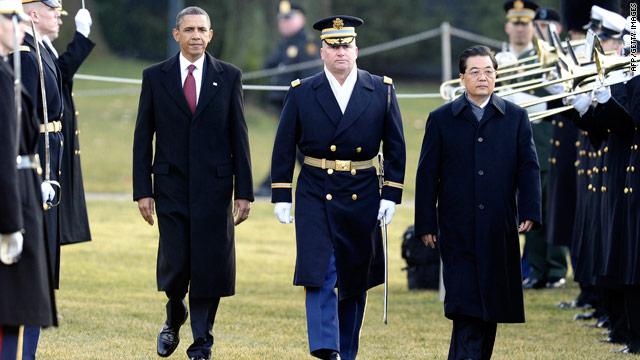
Of course U.S. rebalancing is about China
By Justin Logan, Special to CNN
Editor’s note: Justin
Logan is director of foreign policy studies at the Cato Institute, and
the author of a forthcoming policy study, “China, America, and the Pivot to Asia.”
Brad Glosserman has penned a provocative article
arguing that America’s rebalancing toward the Asia-Pacific isn’t about
“fear of China.” Fear may be too strong a word, but the argument is
still wrong. Of course it’s about China.
It’s telling that Glosserman’s article itself is all about China. For
instance, he mentions Washington’s support for freedom of navigation in
the South China Sea. But the recent friction hasn’t been between
Vietnam and the Philippines. It isn’t Malaysia claiming almost all the territorial waters there. No, the current panic in the South China Sea is all about China.The Obama GITMO myth
The Obama GITMO myth
New vindictive restrictions on detainees highlights the falsity of Obama defenders regarding closing the camp
 Accused
Sept. 11 co-conspirator Ramzi Binalshibh is shown while attending his
military hearing at the Guantanamo Bay U.S. Naval Base in Cuba.
(AP/Janet Hamlin)
Most
of the 168 detainees at Guantanamo have been imprisoned by the U.S.
Government for close to a decade without charges and with no end in
sight to their captivity. Some now die at Guantanamo,
thousands of miles away from their homes and families, without ever
having had the chance to contest accusations of guilt. During the Bush
years, the plight of these detainees was a major source of political
controversy, but under Obama, it is now almost entirely forgotten. On
those rare occasions when it is raised, Obama defenders invoke a blatant
myth to shield the President from blame: he wanted and tried so very hard to end all of this, but Congress would not let him. Especially
now that we’re in an Election Year, and in light of very recent
developments, it’s long overdue to document clearly how misleading that
excuse is.
Accused
Sept. 11 co-conspirator Ramzi Binalshibh is shown while attending his
military hearing at the Guantanamo Bay U.S. Naval Base in Cuba.
(AP/Janet Hamlin)
Most
of the 168 detainees at Guantanamo have been imprisoned by the U.S.
Government for close to a decade without charges and with no end in
sight to their captivity. Some now die at Guantanamo,
thousands of miles away from their homes and families, without ever
having had the chance to contest accusations of guilt. During the Bush
years, the plight of these detainees was a major source of political
controversy, but under Obama, it is now almost entirely forgotten. On
those rare occasions when it is raised, Obama defenders invoke a blatant
myth to shield the President from blame: he wanted and tried so very hard to end all of this, but Congress would not let him. Especially
now that we’re in an Election Year, and in light of very recent
developments, it’s long overdue to document clearly how misleading that
excuse is.Last week, the Obama administration imposed new arbitrary rules for Guantanamo detainees who have lost their first habeas corpus challenge. Those new rules eliminate the right of lawyers to visit their clients at the detention facility; the old rules establishing that right were in place since 2004, and were bolstered by the Supreme Court’s 2008 Boumediene ruling that detainees were entitled to a “meaningful” opportunity to contest the legality of their detention. The DOJ recently informed a lawyer for a Yemeni detainee, Yasein Khasem Mohammad Esmail, that he would be barred from visiting his client unless he agreed to a new regime of restrictive rules, including acknowledging that such visits are within the sole discretion of the camp’s military commander. Moreover, as SCOTUSblog’s Lyle Denniston explains:
US: Remember Fast and Furious’s Mexican Victims
US: Remember Fast and Furious’s Mexican Victims – by Deroy Murdock
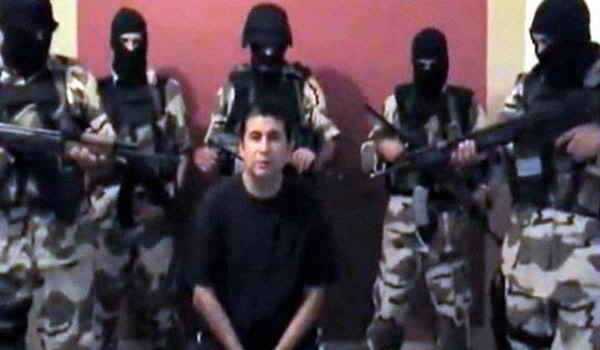 The “walked” guns draw blood south of the border.
The “walked” guns draw blood south of the border.The American people finally have heard of Brian Terry. He is the best-known victim of Fast and Furious, an Obama-administration conventional-weapons-proliferation program. Between November 2009 and January 2011, Team Obama arranged for licensed firearms dealers to sell guns to straw buyers, who transferred them to known violent criminals in Mexico. Two of these firearms, AK-47s, were found near Rio Rico, Ariz., where suspected smugglers fatally shot Terry, a 40-year-old former Marine, on December 15, 2010.
“I do not fear death,” Terry once wrote. “I do fear the loss of my honor, and would rather die fighting than have it said I was without courage.”
US: Caught in a green crossfire
US: Caught in a green crossfire – by Paul Driessen
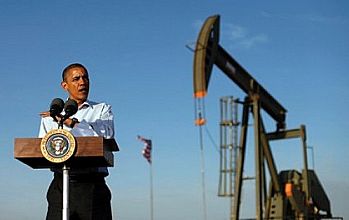 President Obama’s war on fossil fuels is hurting American workers, families, hopes and dreams
President Obama’s war on fossil fuels is hurting American workers, families, hopes and dreamsPresident Obama has waged war on fossil fuels for three and a half years – and American consumers and families are caught in the green energy crossfire.
They are getting hit with higher energy prices, dismal employment prospects and a floundering economy, as billions go to unfriendly overseas countries for oil we could produce in the USA, and billions of tax dollars are wasted on subsidy schemes designed to make “green” energy more competitive – by raising the cost of electricity and fossil fuels that really power our economy.
US: Cut Cuba-Syria Ties to Receive Public Funds
US: Cut Cuba-Syria Ties to Receive Public Funds – by Mauricio Claver-Carone
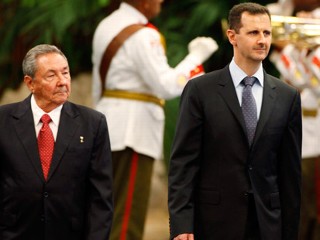 With
only a single dissenting vote, Florida lawmakers passed and sent HB 959
to Gov. Rick Scott. The legislation prohibits state and local
governments from contracting with companies doing business with brutal
dictatorships in Cuba and Syria. In 2009, legislators also ruled out
public contracting with companies doing business with Iran and Sudan.
With
only a single dissenting vote, Florida lawmakers passed and sent HB 959
to Gov. Rick Scott. The legislation prohibits state and local
governments from contracting with companies doing business with brutal
dictatorships in Cuba and Syria. In 2009, legislators also ruled out
public contracting with companies doing business with Iran and Sudan.The U.S. State Department classifies all four countries as “state sponsors of terrorism” and 24 other states have enacted similar bans against using taxpayer dollars to enrich corporations propping up anti-American dictators. To most Americans, cutting off dollars to terrorist states is a matter of common sense and to many it’s morally unconscionable to finance repressive states that do not respect basic human rights.
US: No New Property Waiver for Nicaragua’s Daniel Ortega
US: No New Property Waiver for Nicaragua’s Daniel Ortega – by Ambassador Robert Callahan & Ray Walser
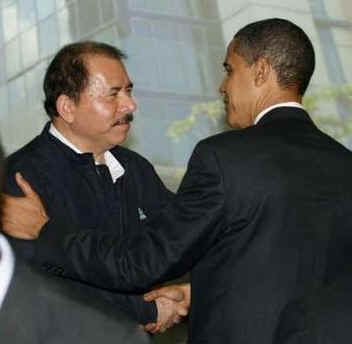 If
the Obama Administration is serious about promoting democracy in
Nicaragua, it can emphatically do so later this month when it decides
whether to grant a property waiver to President Daniel Ortega’s corrupt
and authoritarian government.
If
the Obama Administration is serious about promoting democracy in
Nicaragua, it can emphatically do so later this month when it decides
whether to grant a property waiver to President Daniel Ortega’s corrupt
and authoritarian government.If it opts to withhold the waiver, it will compel the U.S. to oppose Nicaragua’s loan applications at the Inter-American Development Bank, International Monetary Fund, and World Bank. This could cost Nicaragua millions of dollars in grants and concessionary loans.
Eyewitness: Mysterious Booms Return To Wisconsin
Eyewitness: Mysterious Booms Return To Wisconsin
“Like someone slamming the earth with a big machine”Paul Joseph Watson
Mysterious booms that plagued several towns in Wisconsin
earlier this year appear to have returned, with an eyewitness reporting
hearing the strange noises repeatedly over a 30 minute period last
night.

The booms, described as a rumbling noise coming from
deep underground, stoked intrigue earlier this year and a US Geological
Survey investigation after being reported over several weeks in the town of Clintonville. The strange noises were also heard and felt in Baraboo and Montello.
Follow the Trend: Batman Shooter James Holmes Was On Hardcore Pharmaceutical Drugs
Follow the Trend: Batman Shooter James Holmes Was On Hardcore Pharmaceutical Drugs
Anthony GucciardiLike virtually all massacre shooters before him, the notorious Batman shooter James Holmes is now reported to have been taking hardcore pharmaceutical drugs. In Holmes’ case, they happen to be the very same drugs that ultimately led to the early death of actor Heath Ledger. With a fix for ‘altering his state of mind’, the ‘Batman shooter’ was heavily hooked on the prescription painkiller Vicodin. Holmes even reportedly dosed up on a pharmaceutical cocktail just before the shooting.

Side effects of Vicodin use, even at ‘recommended’ levels which Holmes likely far exceeded, include ‘altered mental states’ and ‘unusual thoughts or behavior’.

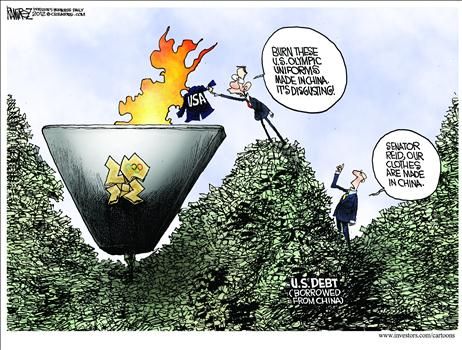







No comments:
Post a Comment